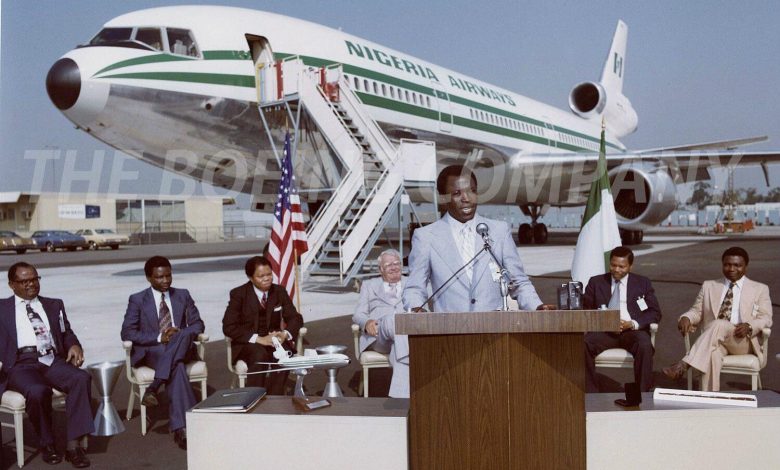Nigeria@62: Aviation Industry’s growth from Independence

Nigeria’s aviation industry since independence has evolved from being a one-airline industry with the then national carrier, Nigeria Airways.
Since 1960, the sector has grown in leaps and bounds, giving birth to many indigenous carriers, attracting foreign airlines, cargo, ground handling as well as onboard catering firms while stimulating many other non-aviation related business.
The aviation industry started way back before Nigeria attained independence in 1960.
In 1971, the West African Airways Corporation (WAAC) which was in place before Independence metamorphosed into Nigeria Airways Limited which then became the national carrier until it liquidation in 2003.
The national airline was a force to reckon with as the airline imprints the Nigerian flag on wings of its aircrafts as it flies across Africa, Asia, the Americas, Europe and Oceania.
With Bilateral Air Services Agreements, BASA, signed, more routes were opened to the Nigeria Airways thereby, bringing the nation closer to the entire world.
Former Managing Director, Nigeria Airways Limited, Mr. Andrew Okunuga said, Nigeria Airways in its heydays was indeed a pride of the country.
“It brought great relationship and diverse culture to Nigeria, it made Nigeria very relevant and recognized in the community of nations, it flew presidents, heads of state, they flew military when they had to support other countries to make peace for example the ECOMOG airlifting during the Liberian war”.
Realizing the importance of the private sector participation in economic development, the Federal Government opened the Nigerian airspace to private investors.
Many Nigerians set up airlines, expanded flight routes and operated side by side with the Nigeria Airways thereby providing seamless means of air transportation for Nigerians within the country.
And ever since the private investors were allowed into the nation’s airline business, the industry has grown in leaps and bounds.
Notable among the airlines are Aero contractors, Okada, ADC, Albarka and Chanchangi.
Others are Bellview, Spaceworld, Gas, Concord, Trias among others.
Unfortunately, these private airlines operated barely for ten years and closed shops.
The same fate befell the once prided national carrier; the Nigeria Airways due to alleged corruption and mismanagement.
Apart from the airlines, airports were built, owned and run by the Federal Government until lately when some states governments saw the need to own their own with the aim of boosting trade and tourism.
Group Captain John Ojikutu retired described this as a positive development.
“There have been some kind of physical development of the industry, from about six airports before the independence to about fifteen after the independence, now we have about thirty Federal Government airports, state airports and private airports”.
Job creation, foreign direct investment and increased economic activities in passenger, cargo and other ancillary service provision have been a positive hallmark by the industry.
Former General Secretary, National Union of Air Transport Employees, NUATE, Mr.Olayinka Abioye and aviation analyst Mr. Olu Uhunayo say since 1960, the sector has not fare badly in terms of development, growth and human capacity development.
“It has been very smooth but it has also been turbulent, we had one of the best airlines in the world, we lost it, all others comers came on board and took over where we stopped especially the job opportunities that has been created”.
“We also have the general aviation, it has continue to grow with the private jet operators”.
In the area of air safety, there had been some fatal crashes and incidents.
However, over the years these have been reduced to the barest and like every industry, there is no immunity to any form of accident.
Commissioner, Accident Investigation Bureau, AIB Nigeria, Mr. Akin Olateru listed some progress his Bureau has made so far in tackling plane crashes in the country.
“Nigeria as a country, we have one of the best safety records in the world and I don’t know how many countries in the world can boast of that record. It is not by luck, safety is no accident, it is about everybody doing what they are supposed to do”.
Stakeholders say, though the industry had been plagued by many challenges, it will surmount these challenges with the correct and workable policies, strict regulatory oversight and adherence to standards, recommended practices and operating procedures.




